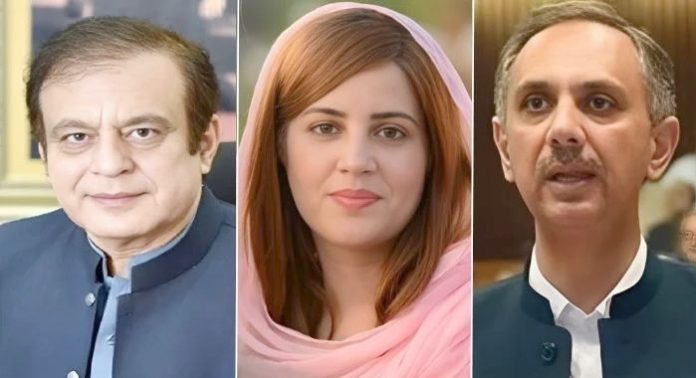Ansar M Bhatti
ISLAMABAD: In a major development that has intensified Pakistan’s political turmoil, an anti-terrorism court has handed down severe sentences to several Pakistan Tehreek-e-Insaf (PTI) leaders in connection with the May 9 violence. Prominent PTI figures Shibli Faraz and Omar Ayub Khan have been sentenced to 10 years in prison, while Ali Afzal Sahi received a three-year jail term. However, Fawad Chaudhry and Zain Qureshi were acquitted, highlighting what critics call a selective application of justice.
The verdicts come as the latest blow to PTI, which has seen its representation in Parliament nearly wiped out following a series of disqualifications and convictions. Earlier, key leaders including Ejaz Chaudhary and Jamshed Dasti—PTI’s opposition leader in the Punjab Assembly—were also sentenced in the same case, resulting in the loss of their legislative seats.
The May 9 protests erupted last year following the arrest of PTI founder Imran Khan, with supporters allegedly attacking military installations. While the government maintains that the legal actions are necessary to uphold the rule of law, opposition figures and human rights groups have raised concerns over the fairness of the trials.
“The disparity in sentencing—some leaders getting harsh punishments while others walk free—exposes the political nature of these cases,” said a PTI spokesperson. “This is not justice; it is the systematic elimination of opposition.”
With PTI lawmakers increasingly disqualified or imprisoned, Pakistan’s parliamentary opposition has been significantly weakened. Analysts warn that sidelining the country’s largest political party could undermine democratic norms and fuel instability.
“A democracy cannot function without a strong opposition,” said political analyst Dr. Hasan Askari. “The absence of PTI from legislative bodies means less accountability and more one-sided decision-making.”
PTI supporters have condemned the verdicts, calling them politically motivated. Meanwhile, the government has defended the court’s decisions, stating that those involved in violence must face consequences.
As tensions escalate, concerns grow over Pakistan’s political future. If PTI continues to be marginalized, experts fear it could lead to further polarization, with supporters potentially resorting to more aggressive forms of dissent.
Amid the deepening crisis, civil society groups and international observers have urged the government and opposition to engage in dialogue to prevent further instability. “The only way forward is through inclusive politics,” said a human rights activist. “Suppressing dissent will only deepen the crisis.”
With PTI’s legal battles far from over, Pakistan’s political landscape remains on edge, raising critical questions about the future of democracy in the country.

















